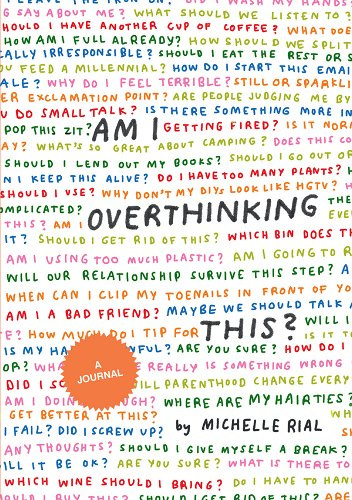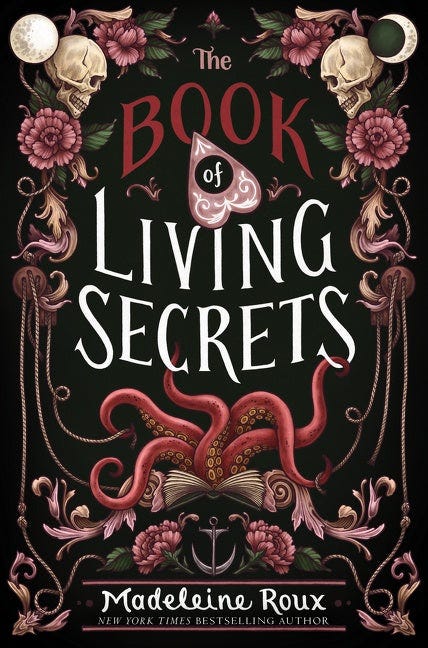Hello friends,
A question I frequently get from clients, anywhere from one to seven days after their book comes out is: how do I know if my book is doing well? The short answer is, you don’t! The longer answer is, what do you mean by well? Today’s topic is: How To Know if Your Book/Career/Whatever is a “Success.”
The answer may surprise you! (unless you’ve been reading this newsletter for a while, because then it won’t.)
Sales
One thing clients mean by well is sales. How many books have I sold? Is that a good or bad number? How do I find out how many books I have sold so I can ell if it is good or bad? Take a look back to this post to refresh your memory/learn how book sales are calculated and reported (TLDR: nor instantly) and you’ll recall that it is very hard to know how many total books any book has sold on a day to day basis. BookScan (a subscription service that tracks book sales) only tracks 50-80% of actual sales (a big spread! depending on the type of book and where it is most commonly sold!) so it’s not like tracking likes, or page views, or followers or any other metric we typically use to measure success, and have relatively easy access to. I know it is surprising in this day and age that information we want is not readily available to us, but there it is. This is not going to change any time soon.
So, what is well when it comes to sales. It depends on the book and the author. A very typical print run—the total number of books a publisher prints first/at a time—is 5,000 or 7,000 or 12,000 books. Really! It would then be very unlikely for your book to SURPRISE! sell 1200 copies everyday for its first week on sale. If it did you would absolutely know because your publisher would be telling you they were going back to print for more copies because stores were ordering it to replenish their stock. You would know it was doing well not because a specific number was being reported to you or calculated somewhere, but because things were happening and your publisher was doing things to meet that demand.
Your book could also be doing well because bookstores go back and order more a month or two after publication, or even six months. Or it never goes back to print and your hardcover run sells through just as your paperback comes out and everyone is glad that the numbers worked out just right and high fives a million angels.
There is no number that equal success. There is no number that means you automatically get on the New York Times best seller list. There are numbers (which vary) that make publishing people go YAY! and numbers (which vary) that make publishing people go damn and this is all to say that looking for sales figures to measure success is a mixed bag at best and a lost cause at worst. This is particularly annoying because the whole run up to publication day is PRE-ORDER PRE-ORDER PRE-ORDER NUMBERS SALES NUMBERS GO GO GO GO GO GO. And now I’m telling you don’t worry about numbers and well, yeah. Sorry. I know. There are numbers that you may see on your royalty statements and BookScan (if you have it/see it/learn it) that will make you sad. There are numbers that may make a publisher say this book didn’t work and we don’t want your next one. There is not a SPECIFIC number that will do that. There is no cut off at 4328 books that says YES TO BOOK TWO or NO TO BOOK TWO. That is what authors are often looking for when they ask if their sales numbers are good. There is no objectively good (except numbers with many zeros behind it, that is objectively good and few achieve it) number. It all has to be taken into context.
Advances
You could, of course, measure success in terms of money. Six figures is good, right? (Ok, I do think we can all agree on that.) But does that mean that $99,999 and under is bad? Again, there is no clear line in the sand that delineates good and bad, success and failure. I have books that earned modest advances to start and that have been earning royalties for a decade. I have books that got that coveted six figure advance and that was it. If you are looking for a sign as to whether you/your book/your career equals good then advance is not the only metric. See above.
Deals
So, it must be book deals, then, right? That’s how you can measure success? If you get a book deal every six months or a year, or if you sell (most) every book you send out, or if you get this specific book deal by the end of the year that means it’s working, right?????? I think you can predict my answer. It might! A book deal every year is sure something I would like as a writer! Could you imagine? But you could also be working in a genre where it is normal to write two to four books a year and then only one a year feels like a let down. As a single metric, this might not be it, either.
Soooooooooo, what then?
¯\_(ツ)_/¯ or, more accurately, you get to decide. If you want to measure your success by a certain number of books sold or deals made or dollars advanced, then you get to do that. You don’t, however, have much control over those things. You cannot sell books by sheer force of will. I would tread lightly if using only those metrics. I know that others may be using these metrics against you in future deals! As in, if you get a very high advance and don’t sell a lot of books, a publisher might not buy your next book!!!!! This is only partly true. They may not buy your next book that’s just like your first book that didn’t sell that well, but it doesn’t mean they aren’t open to other ideas. Yes, you know or have heard about someone dropped from their publisher because of a low sales/high advance scenario. It happens. But you aren’t hearing about the other book they might have picked up, or the other publisher that jumped on something six months later.
The moral of the story is that there is no one way to define success. Each author gets to—must!—define it for themselves. It can be money. It can be awards. It can be speaking gigs or school visits or podcast appearances. It can be getting to write whatever the fuck you want next. It can be writing whatever you want next and putting it on your Patreon because now you have a small but dedicated audience and screw publishing. It can be grinding until you get a six figure advance and putting down your pen forever. But my advice is to frame it in terms of things YOU can control and let the other stuff be wonderful surprises (or frustrating hurdles) along the way.
The playing field is not level. It is easier for more white people to be ¯\_(ツ)_/¯ about sales or advances than marginalized people or people of color. Most marginalized people and people of color are held to a much higher standard when it comes to sales and measuring success and, on the flip side, assuming that certain topics or stories will not meet even modest levels of success from the jump. This sucks. This is unfair. I hope people in those communities know that some of us are trying to address this from the inside. I hope we can hurry up change.
Speaking of success: I am VERY PLEASED to crow about the successful publication of these books today! HAPPY PUB DAY!!!!
Michelle Rial’s Am I Overthinking This? Journal!!! Michelle’s original book is not only a book and two calendars (and a second book!) but this gorgeous journal with lots of blank space to overthink in and blank charts to create your own overthinking visualizations. I love it.
This is Madeleine Roux’s—I think—fourteenth book??? (Maddie, I’m sorry. I forget how we count the novellas. And this only counts the published ones to date. :) ) FOURTEEN! AT LEAST! And I am ready to declare it is my favorite. THE BOOK OF LIVING SECRETS is YA horror with a meta book-in-a-book (which I love), fantastic characters, and a monster that STILL gives me the creeps to think about and I first read this book a long time go! And look at this cover!!! Go get it now.
Last but not least, happy publication day to my 5 year old’s current favorite book EDWARD AND ANNIE: A PENGUIN ADVENTURE! Working with the Shedd Aquarium on this book had been a joy and I can’t wait to go see these adorable penguins IRL one day soon. Did you see them wandering the aquarium in the early days of the pandemic? Now in picture book form!
One more thing. I wrote, with Isaac Fellman, author of DEAD COLLECTIONS, which you should read right now, a piece for Catapult about genre and how to define it. Our answer, much like today’s, is: ¯\_(ツ)_/¯. See for yourself.
Take care. XOXOXOX,
Kate





![Edward and Annie: A Penguin Adventure by [Caryn Rivadeneira, Katy Tanis, Shedd Aquarium] Edward and Annie: A Penguin Adventure by [Caryn Rivadeneira, Katy Tanis, Shedd Aquarium]](https://substackcdn.com/image/fetch/w_1456,c_limit,f_auto,q_auto:good,fl_progressive:steep/https%3A%2F%2Fbucketeer-e05bbc84-baa3-437e-9518-adb32be77984.s3.amazonaws.com%2Fpublic%2Fimages%2Fa4df1de4-00b3-4030-a544-e5a8f2e3c936_260x260.jpeg)
I would like to complement you on your use of multiple explanation points, and the word fuck. That's where I'm at today...
This was the most helpful of the handwavey non-quantitative posts about book success, thank you!
I think it would interesting to do a Q&A edition where you ask authors why they ask these questions-- I never see my reasons reflected in these type of answers. :)